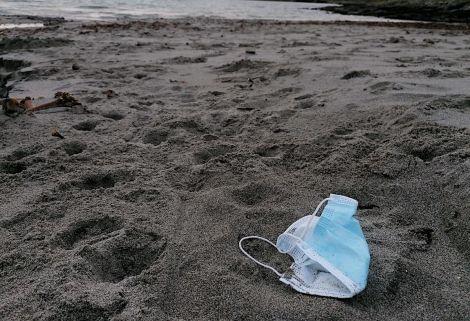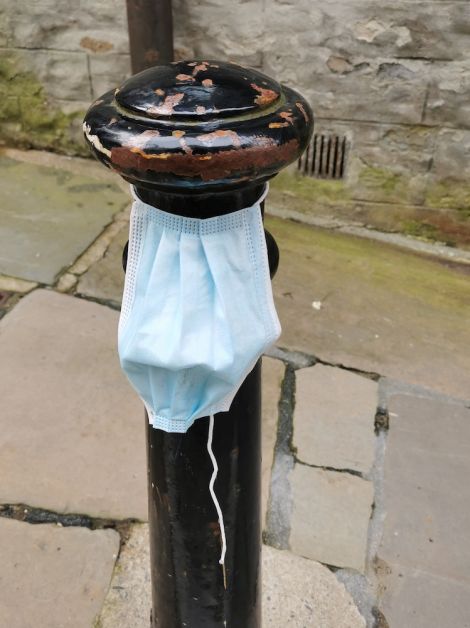Environment / There is energy left in your used face mask, district heating scheme reminds local people
FOLK have been reminded to properly dispose of single-use face masks as they can be incinerated in Lerwick’s waste to energy plant, instead of taking hundreds of years to break down in landfill.
Greenpeace, amongst others, report that 53 million masks are thrown out every day in the UK alone.
Instead, in Shetland, discarded face masks as well as all the other single-use plastics people have no choice but to use as a consequence of the Covid pandemic can be put to a beneficial use in the district heating system.
Derek Leask of Shetland Heat Energy &Power (SHEAP) said: “If we’re lucky most of these face masks end up in landfill in the UK mainland and not polluting our cities and countryside. However it can take 450 years for these to break down and even then the plastic can hang around as tiny micro plastics.
“However in Shetland we’re fortunate that we have the council’s waste for energy plant and the Lerwick district heating scheme that can incinerate these masks, immediately eradicating them, and converting them into energy that can go back to providing heat and hot water for the hospital as well as the rest of the community.”
NHS Shetland, meanwhile, said that on average the hospital is now producing two rather than one full container of disposable single-use plastic per week which is being incinerated at the council-run waste to energy plant.
Leask said Zero Waste Scotland recently identified the SIC’s incinerator as having the lowest carbon intensity of any such facility in the country.
“This is because the energy recovery plant (ERP) produces heat only which makes it much more efficient than mainland plants which produce electricity and dump some or all of the heat produced,” he said.
Become a member of Shetland News
“In the journey to net zero making sure incineration of waste is done efficiently is becoming more important. Having a heat only plant allows Shetland to be a great example in this sector.
“Therefore, the best way to deal with the problem of face masks is to cut the elastic and put them in the bottom of your black bags so they can’t blow away and the ERP will turn them into low emission energy which SHEAP will deliver to the town.”
Meanwhile, Shetland Islands Council said discarded face masks littering the local environment has not been a big problem. That is in contrast to the national picture, where government agency Zero Waste Scotland reports single-use face coverings being littered as a growing problem.
The council’s acting team leader for waste Brydon Gray said: “As far as face masks and litter, we haven’t had a problem cleaning the streets throughout this entire period so I can’t say it has really affected the cleansing team.
“From my personal point of view, I have noticed the odd mask while walking around Lerwick but generally our streets are very clean. If we do get notification of a litter problem then our cleansing team are very quick in sorting out any issues.”
Chief executive of Zero Waste Scotland Iain Gulland added: “Over the course of the pandemic, we have seen more and more instances of single-use face coverings being littered. This is not only unsightly, but it also poses a threat to local wildlife.
“Reusable face coverings are better for both purse and planet. It is estimated that people could save around £180 per year by switching to reusable face coverings from single-use for daily use.
“Single-use face coverings can’t be recycled, so they cause problems for the local authorities when wrongly disposed of in the recycling bin. Reusable face coverings can be worn time and time again, provided they are cleaned properly. So, choosing a reusable alternative is a win-win for both you and the environment.”
Become a member of Shetland News
Shetland News is asking its readers to consider paying for membership to get additional perks:
- Removal of third-party ads;
- Bookmark posts to read later;
- Exclusive curated weekly newsletter;
- Hide membership messages;
- Comments open for discussion.
If you appreciate what we do and feel strongly about impartial local journalism, then please become a member of Shetland News by either making a single payment, or setting up a monthly, quarterly or yearly subscription.


























































